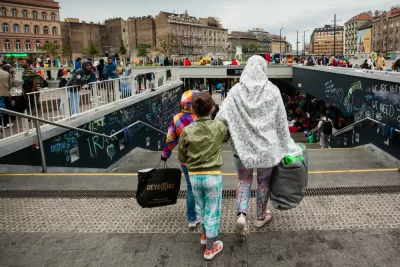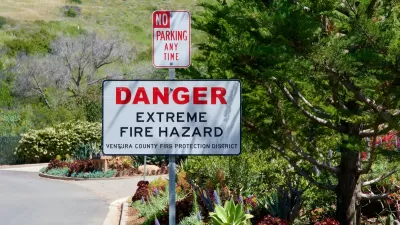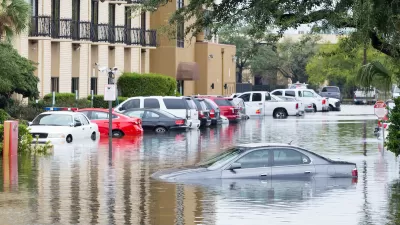"Humanitarians are conditioned to think about people, urban planners are conditioned to think about how the place affects people."

Increasingly, humanitarian crises are found in dense urban areas. Urban planner and International Rescue Committee worker Samer Saliba offers key urban planning insights to improve preparedness and response.
"Often, the most vulnerable people are moving to the most at-risk areas of cities-a problem exacerbated by climate change and the increasing risk of natural disasters. Similarly, the majority of forced migrants (refugees and internally displace) today are in urban non-camp settings."
Humanitarians must consider the importance of non-traditional actors, including civic and political agencies.
"To properly respond to urban crises, humanitarians must acknowledge political influences and appropriately work with political partners in order to achieve feasible solutions with greater reach. This does not mean abandoning humanitarian principles. It just means recognizing others as well… Ensuring the most vulnerable access the services they need in a way that improves those systems for all brings together urban planner and humanitarian objectives."
Saliba cites the Big U proposal to build a storm wall around lower Manhattan as well as the outdoor escalators of Medellin as examples of infrastructural projects that can improve the lives of a city’s most vulnerable populations.
Many planning principles are already embedded in humanitarian best practices. "Each seeks a higher quality of life for those they serve and each tries to improve on how it's done."
FULL STORY: Ten urban planning principles every humanitarian should know

Alabama: Trump Terminates Settlements for Black Communities Harmed By Raw Sewage
Trump deemed the landmark civil rights agreement “illegal DEI and environmental justice policy.”

Study: Maui’s Plan to Convert Vacation Rentals to Long-Term Housing Could Cause Nearly $1 Billion Economic Loss
The plan would reduce visitor accommodation by 25% resulting in 1,900 jobs lost.

Planetizen Federal Action Tracker
A weekly monitor of how Trump’s orders and actions are impacting planners and planning in America.

Waymo Gets Permission to Map SF’s Market Street
If allowed to operate on the traffic-restricted street, Waymo’s autonomous taxis would have a leg up over ride-hailing competitors — and counter the city’s efforts to grow bike and pedestrian on the thoroughfare.

Parklet Symposium Highlights the Success of Shared Spaces
Parklets got a boost during the Covid-19 pandemic, when the concept was translated to outdoor dining programs that offered restaurants a lifeline during the shutdown.

Federal Homelessness Agency Places Entire Staff on Leave
The U.S. Interagency Council on Homelessness is the only federal agency dedicated to preventing and ending homelessness.
Urban Design for Planners 1: Software Tools
This six-course series explores essential urban design concepts using open source software and equips planners with the tools they need to participate fully in the urban design process.
Planning for Universal Design
Learn the tools for implementing Universal Design in planning regulations.
Caltrans
Smith Gee Studio
Institute for Housing and Urban Development Studies (IHS)
City of Grandview
Harvard GSD Executive Education
Toledo-Lucas County Plan Commissions
Salt Lake City
NYU Wagner Graduate School of Public Service





























